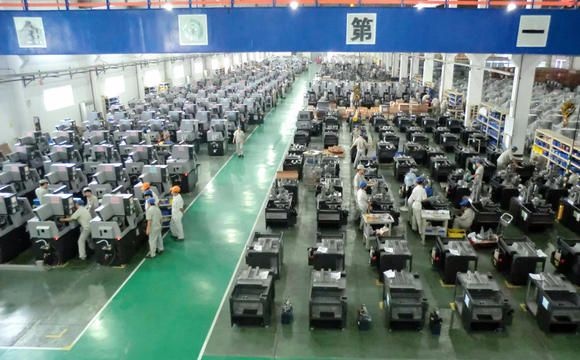
TOKYO -- Japan's machine tool makers are taking steps to revamp their production systems in an effort to weather a decline in orders to levels not seen in more than three years.
The companies are adjusting to changing market dynamics in China and Southeast Asia and positioning themselves to win future orders there.
Tsugami, a leading maker of small automatic lathes for the machining of electronic components, plans to close its Niigata plant and consolidate operations to its Nagaoka plant during 2017. It also plans to add a new factory building at the Nagaoka site with more productive lines and to trim its domestic workforce.
At the same time, Tsugami will dispatch a team of 30 to 40 engineers to China, where they will help the Zhejiang plant overcome a chronic shortage of master mechanics and provide guidance to improve the quality of machine tools made there.
These are rough times for Japan's machine tool makers. According to the Japan Machine Tool Builders' Association (JMTBA), orders in October totaled just 93.88 billion yen ($880 million), down 8.9% on the year to a level not seen in three years and three months.
Domestic orders for the month dropped 7.1% from a year ago to 41.3 billion yen, with the impact of government subsidies in support of equipment investments subsiding.
Exports for the month fell 10.3% to 52.54 billion yen, hurt by the strong yen, the economic slowdown in China, and the wait-and-see attitude in the run-up to the U.S. presidential election.
Revised figures show that orders from China fell on a year-over-year basis for 10 consecutive months through September. But the machine tool makers believe there is latent demand to be tapped there, explained JMTBA Chairman Yoshimaro Hanaki.
Other companies besides Tsugami are also revamping their production systems with an eye on China.
Mitsubishi Heavy Industries Machine Tool, a maker of large machine tools and gear machines, will in fiscal 2017 start using its plant in Jiangsu Province to make machines with more complicated specifications, suited for automation. The replacement demand for automotive transmissions in China is robust, and with that comes a growing need for automation, explained company president Seiji Shirao.



